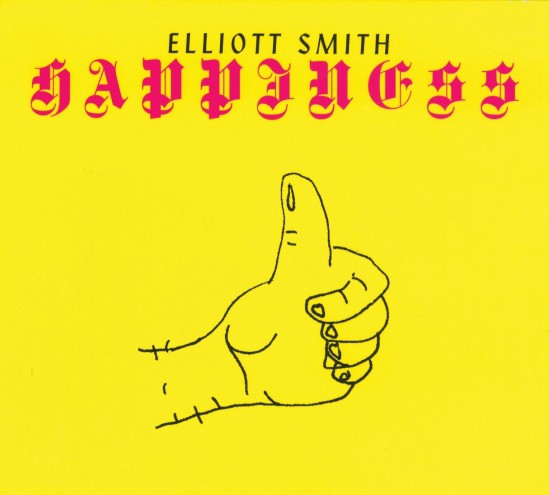Reintroducing Elliott Smith
by Max Abelson

Recently I was driving upstate to visit my brother Tom on the farm he lives and works on with other disabled people. Because I was by myself for the drive and it’s good to have something fun to listen to I made myself a mix of Elliott Smith songs. Why not! Even though it’s sad that Elliott Smith died at age 34 ten years ago today, his music wasn’t all broken bottles in empty parking lots, stained floors, naked mattresses and irreversible damage.
Just kidding, of course it was. He’s the patron saint of heartbreak. Merle Haggard made misery sound manly, Stephen Merritt turned it into a charming underdog to root for, but Elliott Smith was the true bard of torment. He was joy’s eulogist.
He began recording his debut “Roman Candle” twenty years ago, in 1993, making an album so bleak that it’s saddest song isn’t even given a name. If it had one it would be “Home to Oblivion,” the phrase he repeats under soft shoulder-heaves of a pretty guitar. There are three other untitled songs on that album, along with ones named after childhood fireworks and cheap flavored wine.
One hundred years earlier Monet sat in front of the Rouen Cathedral in 1893 painting the same view of the gothic church over and over again, with the hour and weather and the seasons making each canvas different and moving. Elliott Smith made misery his Rouen, singing beautiful melodies about one thing with different light hitting it in new ways. He sketched sadness’ stench at 2:45 a.m., its smog on Easter afternoon, and its echo the morning after.
He is a man who watches his mother sing the Everly Brothers with her new boyfriend while she stares into space smoking. Even when he names his song Happiness and it has Jon Brion’s bubbly backup harmonies it opens with a dead body.
And then the giddy piano in Baby Britain, straight from Paul McCartney smiley songs about sheep dogs and uncles, marches into two versus about a bitter alcoholic. Sweet Adeline isn’t the 1903 flower-of-my-heart barbershop standard, but a dizzy little carnival of cuts and burns, kids on the floor, and winter air. The good news in a song about his biggest lie is that the lie is: “Everything that you do makes me want to die.” He doesn’t say what the truth might be.
But instead of maudlin or solipsistic the music is a swirl of melodies and harmony, sometimes played by cascades of orchestration and sometimes only the loneliest basement guitar. That’s the reason you can listen to twenty of them when you’re driving alone to go visit your older brother upstate on his farm, and why they’ve only gotten better in the ten years since Elliot Smith died.
He wrote sweet sad songs that shook you, and falling in love with somebody’s music when it moves you that way makes you feel slightly responsible for the singer. You hope his songs aren’t about train tracks, trick cards, and swollen cheeks any more than Monet’s paintings were about a building, but listening back sometimes you just don’t know. When I picked up my brother and we drove around he wasn’t crazy about my mix so we put on his favorite, Emmylou Harris.
Max Abelson writes about Wall Street for Bloomberg News and sometimes its magazine Businessweek.
